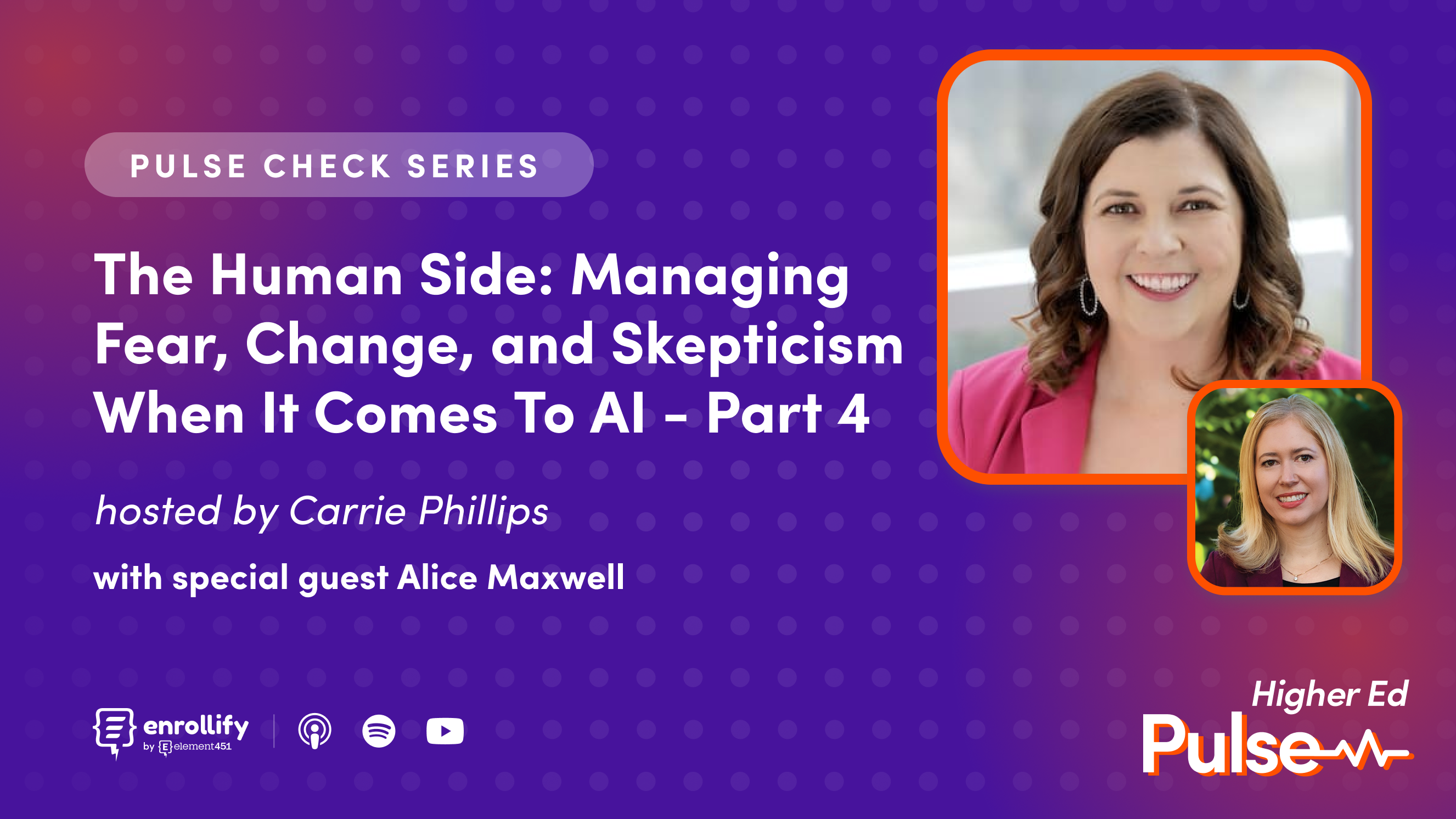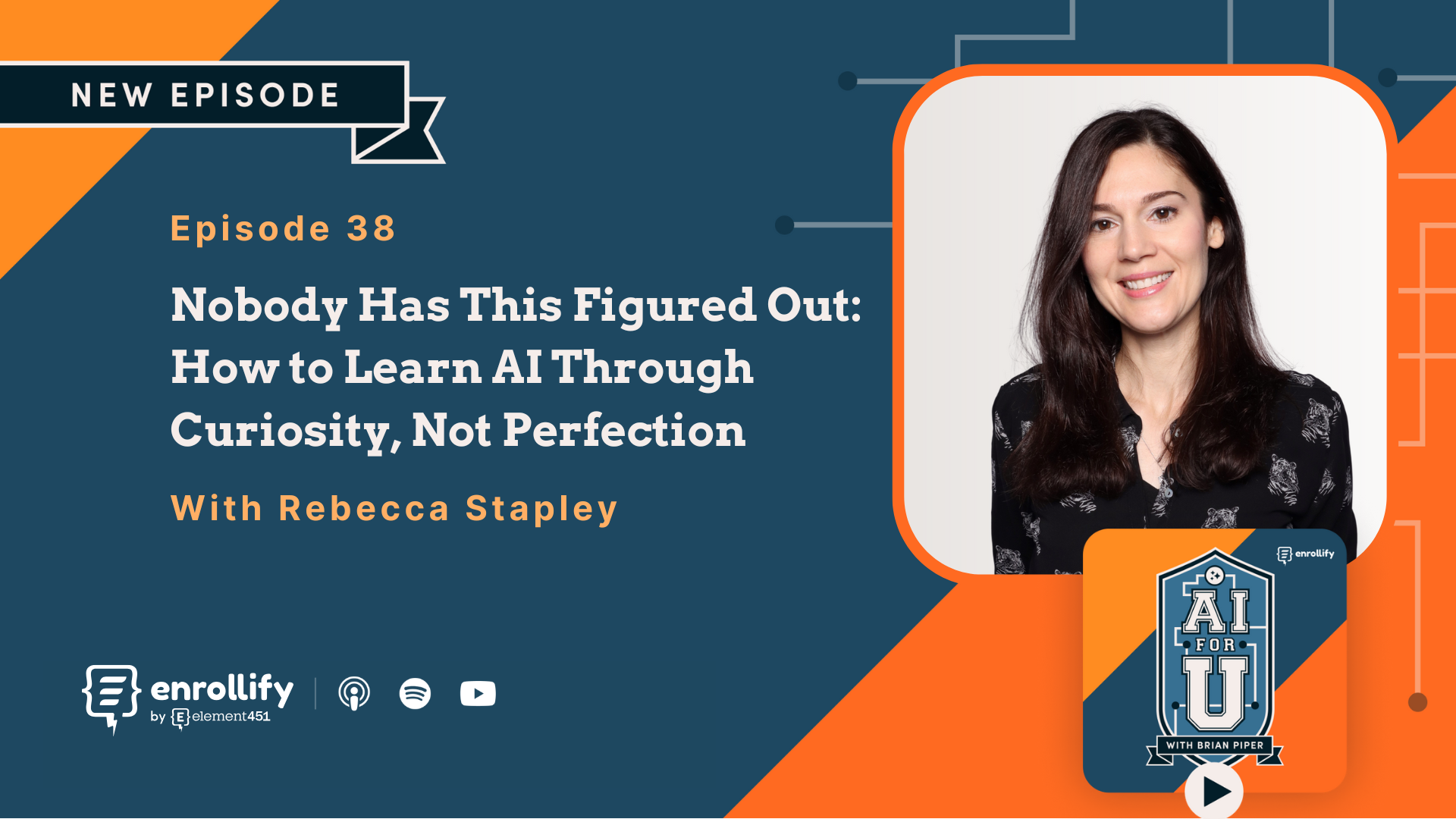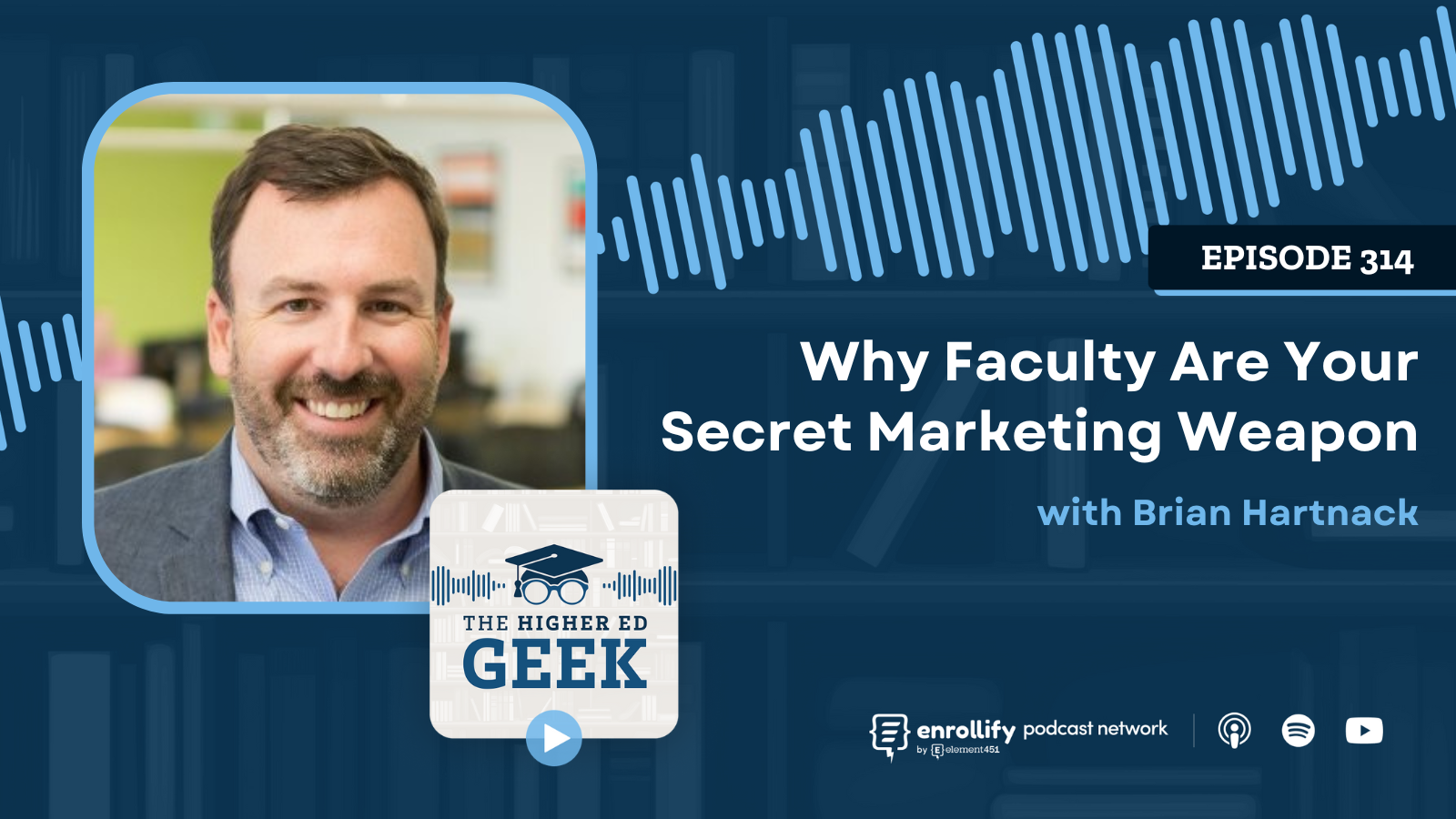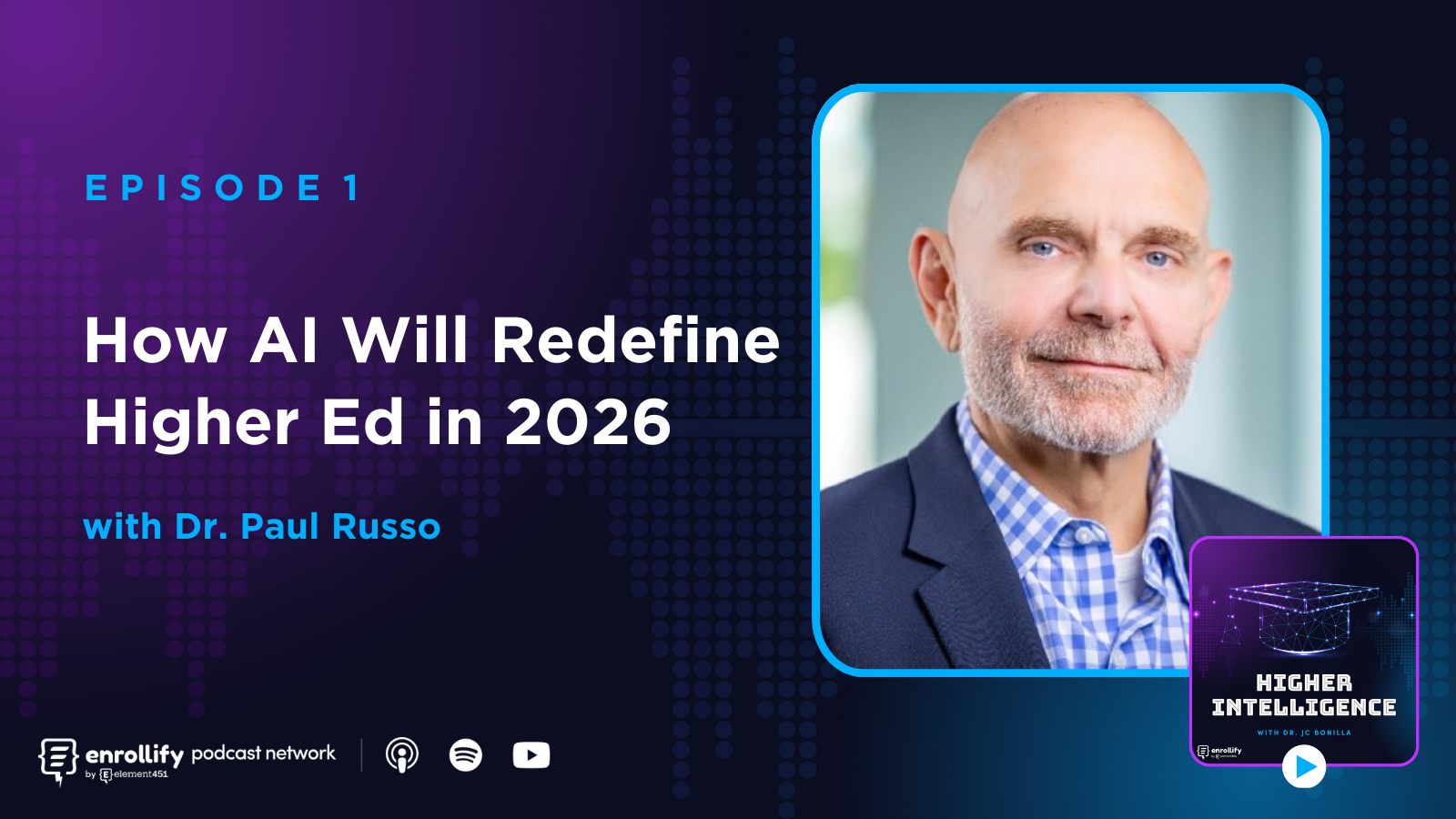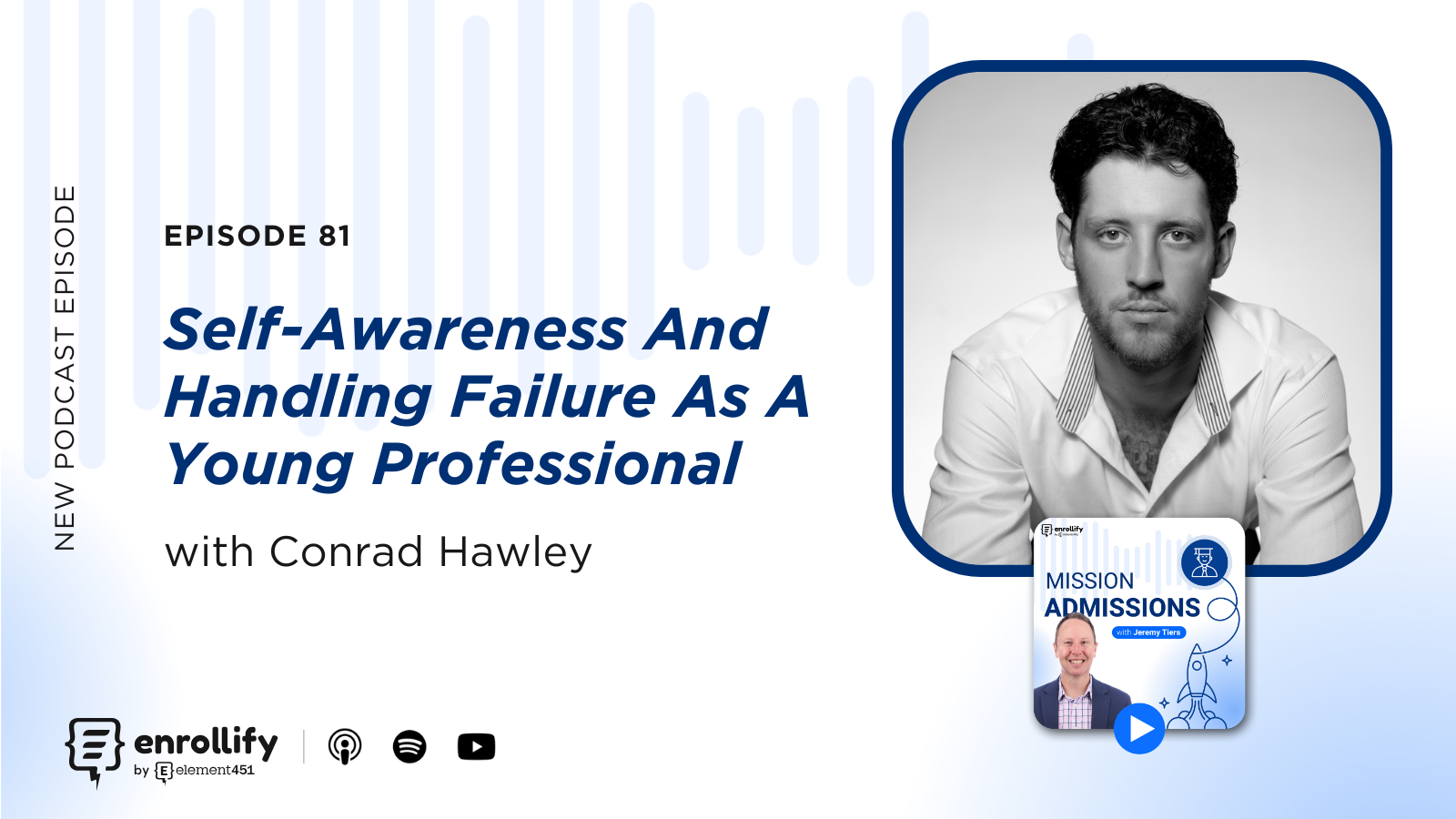About the Episode
Got a story to tell? An innovative idea to share? Fill out our guest nomination form and let's chat!
About the Episode:
At a time when misinformation spreads faster than ever and trust in media is under fire, how do we prepare the next generation of ethical, resilient journalists? In this episode of Mastering the Next, we speak with Colleen Leigh, Assistant Dean of Enrollment Management and Student Success at the Craig Newmark Graduate School of Journalism at CUNY. A former TV reporter turned higher education leader, Dr. Leigh offers a unique perspective on how journalism education is evolving to meet modern challenges.
Join us as we discuss:
- [2:01] Misinformation, political pressure, and journalistic integrity
- [13:10] What makes students thrive in journalism school
- [17:21] DEI in journalism and building a more inclusive newsroom
How has journalism education changed in the last 15 years — and even the last 3?
When Colleen Leigh joined the Newmark School in 2007, the focus was still largely on traditional media — print, radio, TV. Fast forward to today, and the curriculum is unrecognizable in many ways. Students now learn how to tell stories on TikTok, build interactive data visualizations, and master the ethics of digital reporting. But amid this tech-forward shift, the school has preserved the fundamentals: critical thinking, curiosity, and an unwavering commitment to truth. The challenge today? Blending tech fluency with journalistic integrity in a fast-moving, high-stakes media environment.
How does the Newmark School train students to combat misinformation and rebuild public trust?
The approach is twofold: first, students are taught to verify information quickly and accurately — speed is vital, but not at the cost of accuracy. Second, students are embedded in New York City communities to develop trust and report authentically on lived experiences. The school’s “Engagement Journalism” program exemplifies this, asking students to not just report on communities, but with them. Discussions on systemic bias, political polarization, and race in media are regular, open, and part of the curriculum. Leigh notes that integrity isn’t theoretical — it’s something that’s developed in practice, face-to-face, on the streets.
What role does AI and technology play in modern journalism education?
From using AI tools to help with data analysis to exploring storytelling formats on platforms like Instagram and YouTube Shorts, today’s journalism students need to understand more than just the written word. Still, Leigh makes it clear: the goal is not to replace traditional journalistic instincts, but to enhance them. Students are encouraged to think like journalists — to ask deeper questions, trace information back to the source, and engage audiences with purpose. In this environment, tools are helpful, but ethical reasoning is non-negotiable.
How does CUNY’s journalism school support student success from admission through employment?
Leigh has a unique vantage point, overseeing both admissions and student success. She shares that students who thrive are those who remain open, curious, and resilient. The best students don’t just stick to what they know — they experiment, build relationships with faculty, and take full advantage of career services. With a fast-paced 1.5-year program, students are encouraged to think like journalists from day one, including pitching stories, applying for fellowships, and navigating a tough but rewarding job market.
What characteristics define a successful journalism student in today’s landscape?
Successful students are persistent but flexible. They’re community-driven and relationship-oriented. They understand that journalism is not just about bylines — it’s about being grounded in purpose, telling nuanced stories, and building trust with sources, editors, and peers. Students who thrive see challenges not as roadblocks but as opportunities to grow, iterate, and adapt — essential traits in a profession built on curiosity and change.
How is the school fostering diversity, equity, and inclusion — and access to journalism careers?
DEI isn’t performative at the Craig Newmark Graduate School of Journalism — it’s mission-critical. The school has committed to diversifying its student body and pipeline through CUNY-wide partnerships, 4+1 programs, and a bold full-tuition campaign. Currently, all New York state residents receive full tuition scholarships. Faculty, staff, and guest speakers also reflect the diversity of the communities students report on. The goal? Train journalists who represent — and are accountable to — the audiences they serve, while shaping a more inclusive media industry from the inside out.
Connect With Our Host:
About The Enrollify Podcast Network: Mastering the Next is a part of the Enrollify Podcast Network. If you like this podcast, chances are you’ll like other Enrollify shows too!
Some of our favorites include The EduData Podcast and Generation AI.
Enrollify is produced by Element451 — the next-generation AI student engagement platform helping institutions create meaningful and personalized interactions with students. Learn more at element451.com.
Attend the 2025 Engage Summit!
The Engage Summit is the premier conference for forward-thinking leaders and practitioners dedicated to exploring the transformative power of AI in education.
Explore the strategies and tools to step into the next generation of student engagement, supercharged by AI. You'll leave ready to deliver the most personalized digital engagement experience every step of the way.
👉🏻 Register now to secure your spot in Charlotte, NC, on June 24-25, 2025!







.avif)

